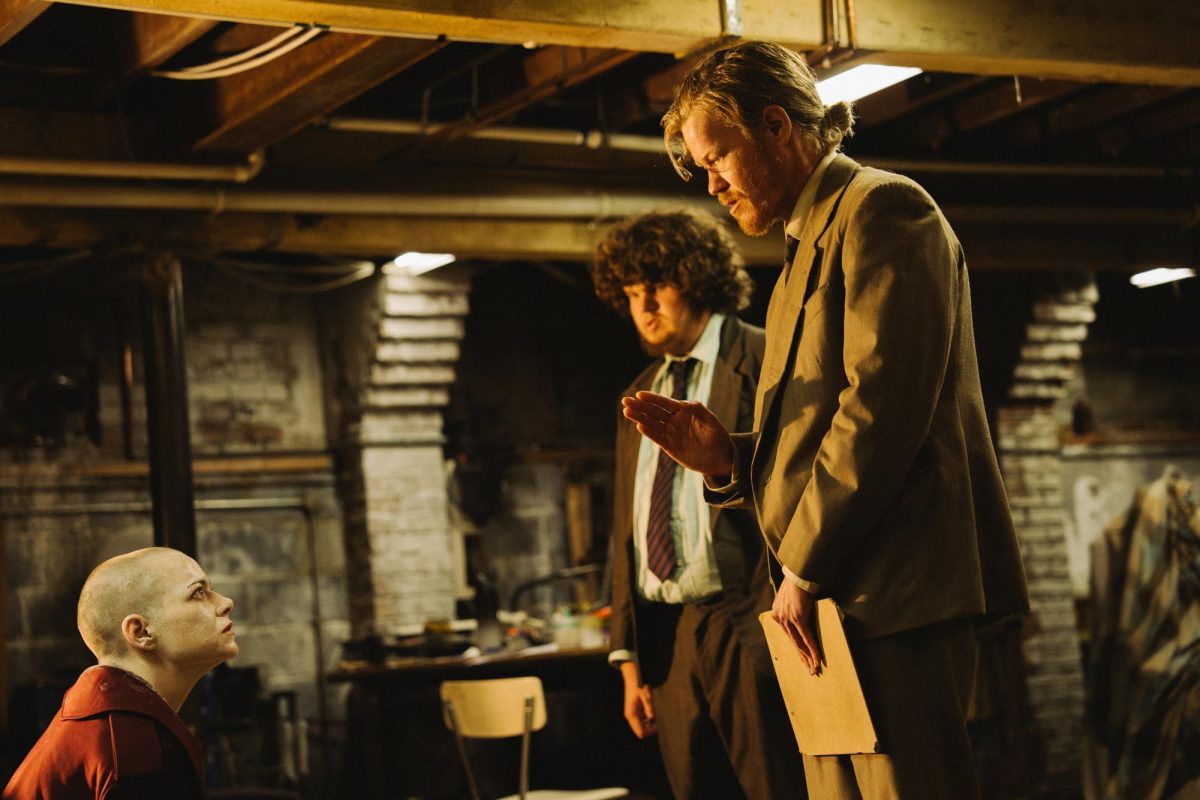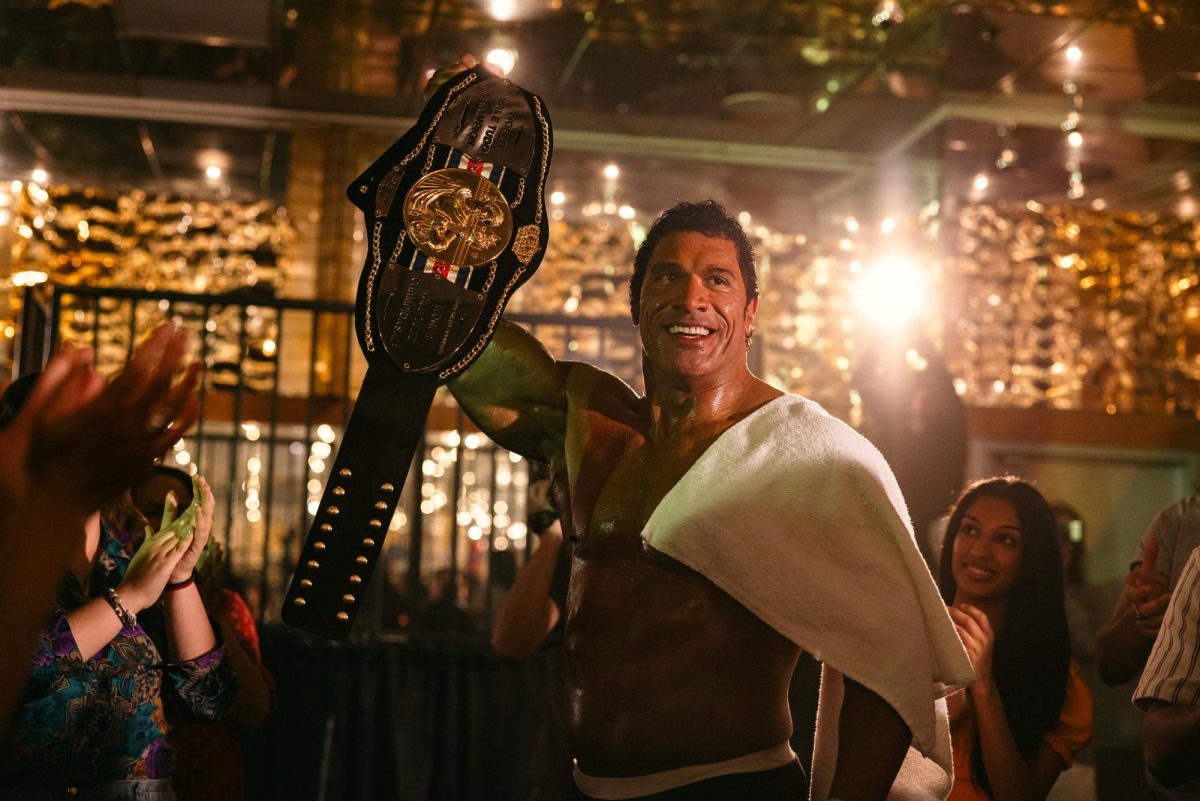Oh, when will they ever learn? It’s a question that director Yorgos Lanthimos continually asks of his characters, and, by extension, the human species as a whole.
Lanthimos’s distinctly macabre filmography is filled with disturbing tales of morality, each finding ways to twist the knife on our preconceived notions. The off-kilter performances and absurd concepts — such as being turned into an animal if you don’t find a companion in “The Lobster,” or Barry Keoghan terrorizing Colin Farrell’s family in “The Killing of a Sacred Deer”— are never so disconnected from reality that they can be excused as pure fantasy.
They’re just another way of looking at things. Once you take a step back, the error of our own ways is exposed in a deservedly uncomfortable light.
Depending on your relationship with Lanthimos, you may either cheer or jeer at the fact that “Bugonia” is his most straightforward film to date, although you have to understand that we’re very much grading on a curve. The weirder and more hostile the better, I say as one of the few fans of Lanthimose’s mean-spirited “Kinds of Kindness” last year. “Bugonia’” subs out the black heart and sardonic wit of “Kinds Of Kindness” for something a little more directly addressed to our modern times.
The first half of the famous Pete Seeger lyric to the leading question of this review is “Where have all the flowers gone?” For one of “Bugonia’s” lead characters, Teddy (Jesse Plemons), they’ve all but disappeared, both literally and figuratively. Living in his dilapidated bee farmhouse with his cousin Don (Aidan Delbis), the pair have fallen on hard times over the years through family tragedies.
Part of that responsibility falls upon the local biochemical company, which has poisoned the local bee population and put Teddy’s mom (Alicia Silverstone) into a coma via a failed opioid drug trial. Michelle Fuller (Emma Stone) is the CEO of the company, and is the type of boss to passive-aggressively claim that employees can go home whenever they want and that diversity is what makes us special… so long as it all leads to a more robust bottom line.
Teddy wonders how humanity can be so cruel to one another, how he and Don can have so little while the Michelles of the world can exact their will without consequence. At least in bee colonies, the worker bees have a sense of purpose for their queen, and everything in nature is perfectly balanced. Teddy’s narration mentions that there’s no sex when bees pollinate, so no one gets hurt. The odd unprovoked specificity of that line, along with a local police officer’s (Stavros Halkias) persistent apologizing for vague acts he inflicted on Teddy many years ago, hints at the darkness lying at the forefront of Teddy’s heart.
Working from that mixture of long-buried PTSD and an avalanche of conspiracy theories, Teddy comes to the conclusion that Michelle must be an alien from the galaxy Andromeda, sent to Earth to push the human species deeper into the mud. He and Don kidnap and hold her in their basement, waiting for the lunar eclipse in four days so that she can call her Mother Ship and they can negotiate a truce between the two species.
Of course, Michelle isn’t on that same wavelength, especially when she wakes up and discovers that all her hair has been shaved off. (Teddy claims that Andromedans use their hair as tracking devices.) Stone, working with Lanthimos on their fourth consecutive feature, is more than up to the task of working within a limited setting.
In contrast to the revolving door of elaborately lush sets in the pair’s “Poor Things,” for example, most of the runtime in “Bugonia” is devoted to Michelle being chained to a bed in a dingy farm cellar. She’s like a boxer, studying her opponents over several rounds, eventually using their weapons against them.
Teddy’s biggest weapon is his confidence in his findings and his initial absolute refusal to be dissuaded by Michelle’s pleas of how ludicrous this all sounds. Without being overly specific to demographics, Lanthimos and Tracy highlight the societal divides we face based on our inability to close our mouths and open our ears. Every contradiction is a personal attack and an opportunity to dig your heels in even more.
It should be noted that Ari Aster is a producer on this project, and another film of his this year as a writer/director – “Eddington” (also starring Stone) – tackles these same topics through a much more confrontational lens. Lanthimos hasn’t lost his confrontational attitude towards his audience, dialing up the tension through Jerskin Fendrix’s bombastic score and some harshly precise editing.
Despite being small-scale, this is still a gloriously cinematic project, one that stretches its dollars to their fullest potential. A few dips into Teddy’s nightmarish past are rendered in washed-out black-and-white, almost right out of a gothic tragedy.
An unfortunate third wheel is Delbis’s character Don, who is neurodivergent and forcefully taken along on Teddy’s crazy train. He perfectly fits the mold of the innocent lackey to the evil boss, forced to realize the error of their ways by the compassion of the hero.
That obviousness is evident from start to finish here, covering this story in a layer of predictability. Some acts of cruelty come off as cheap provocation, something that Lanthimos has skillfully been able to circumvent throughout his career.
Oh, when will they ever learn? According to “Bugonia,” it seems that we’re well aware of the problem, but lack the will to fight for the cure. Indifference is a much more pathetic reason for our downfall than ignorance, although it does have an ironic ring to it.
Focus Features will release “Bugonia” in theaters nationwide on Oct. 31.
Eden Prairie resident Hunter Friesen is a film critic who owns and operates The Cinema Dispatch, a website where he writes reviews, essays, and more. He currently serves as president of the Minnesota Film Critics Association and travels the globe covering film festivals both big and small. To view his entire body of work, you can visit his website and Instagram.







